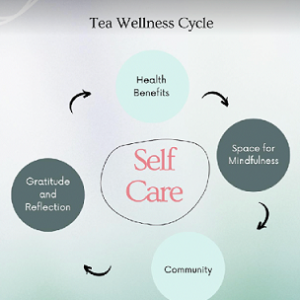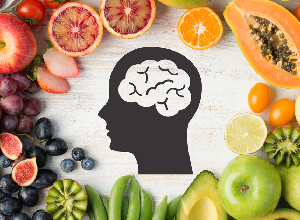Tips for Improving Your Health the Organic Way
I. Introduction
In contemporary society, the pursuit of health has taken on an organic dimension, emphasizing the consumption of whole, unprocessed foods and sustainable living practices. This shift arises from increasing awareness of the adverse effects that synthetic additives and modern agricultural techniques can impose on both human health and the environment. By adopting an organic lifestyle, individuals not only enhance their well-being through nutrient-rich diets but also support ecological sustainability, fostering a connection to the natural world. This essay will explore various tips and strategies for improving health the organic way, ultimately demonstrating that mindful choices in nutrition and lifestyle can lead to profound enhancements in overall health. To visually complement this discussion, the image depicting an assortment of fresh organic produce serves as a potent symbol of the vibrant, healthful options available to those seeking natural alternatives.

II. Understanding Organic Foods
Understanding organic foods is essential for individuals seeking to enhance their health through more conscious dietary choices. Organic foods are characterized by cultivation practices that forego synthetic fertilizers and pesticides, often leading to higher nutrient density in comparison to conventional produce. This distinction is vital, as a qualitative study noted that consumers exhibited varying perceptions of healthy eating, suggesting that clarity in health messaging is needed to combat confusion in diet-related public health strategies (Buckton et al.). Moreover, participants in another study expressed positive attitudes toward local farmers’ markets, highlighting the importance of accessibility and awareness in promoting healthy eating habits (Sharaievska et al.). Through these fresh sources, such as those illustrated in , consumers are often more inclined to make nutritious choices. Consequently, understanding the implications of choosing organic foods can empower individuals to foster better health through informed dietary decisions (Admin), (Admin), (Admin), (Admin), (Admin).
III. Incorporating Organic Practices into Daily Life
Incorporating organic practices into daily life requires a gradual shift toward more sustainable choices that positively impact personal health and the environment. This transition can begin with simple dietary changes, such as choosing organic foods over conventional options, which not only enhance nutritional intake but also reduce exposure to harmful chemicals and pesticides. (Admin) emphasizes the potential health benefits associated with this shift, highlighting the importance of nutritious foods in supporting overall wellness. Furthermore, educating oneself about sustainable food systems allows individuals to make informed decisions that align with environmental values, as noted in (APRIATINA et al.). Engaging in practices such as growing ones own herbs or vegetables can further enrich this lifestyle change, fostering a connection to food that promotes mindfulness and health consciousness. The visually vibrant display of fresh produce illustrated in embodies the essence of organic living, showcasing the appeal of integrating these practices into everyday choices for improved well-being.
IV. Conclusion
In conclusion, adopting a holistic approach to health through organic practices not only nurtures the body but also supports overall well-being. The incorporation of organic foods into ones diet can significantly enhance nutrient absorption, addressing common deficiencies linked to modern agricultural methods and lifestyle choices (Admin). Furthermore, engaging in outdoor activities and embracing natural remedies serves to fortify both physical and mental health, providing a much-needed respite from the stresses of everyday life (Admin). As illustrated by the image of fresh produce , consuming a varied array of organic fruits and vegetables can bolster the immune system and reduce the risk of chronic diseases. Ultimately, the transition to an organic lifestyle requires mindful effort but promises profound benefits for individuals and the environment alike, making it a worthwhile endeavor for those seeking improved health (Dumat et al.), (Balkema et al.)
References:
- Buckton, Christina, Combet, Emilie, Lean, Michael E.J.. “‘Language is the source of misunderstandings’–impact of terminology on public perceptions of health promotion messages”. ‘Springer Science and Business Media LLC’, 2015, https://core.ac.uk/download/42362923.pdf
- Sharaievska, Iryna, Dr., Weddell, Melissa, Dr., West, et al.. “The Privilege of Healthy Eating: A Qualitative Study Exploring the Local Food Choices of Low-Income Families from Appalachia”. Digital Scholarship@UNLV, 2018, https://core.ac.uk/download/268693945.pdf
- Noreen Beatley. “Green Housing = Improved Health: A Winning Combination”. Neighborworks America, 2011, https://core.ac.uk/download/71345591.pdf
- APRIATINA, EKATERINA. “Education for Sustainable Development: Teaching Environmental Sustainability to Adolescents”. 2023, https://core.ac.uk/download/596364091.pdf
- Bratsberg, Julianna F., Roberts, Aundrea Marcella, Untiedt, Susan R.. “Circles of Connection: Finding Social Connectedness and Meaning within Group Process”. Dominican Scholar, 2013, https://core.ac.uk/download/215552453.pdf
- Davis, Brittany, Sherman, Leah. “The Effectiveness of Occupational Therapy Interventions for Students with Mental Illness Transitioning to Higher Education: A Systematic Review”. UND Scholarly Commons, 2017, https://core.ac.uk/download/235073640.pdf
- Dumat, Camille, Pinelli, Eric, Pourrut, Bertrand, Shahid, et al.. “Lead-induced genotoxicity to Vicia faba L.roots in relation with metal cell uptake and initial speciation”. ‘Elsevier BV’, 2011, https://core.ac.uk/download/12043035.pdf
- Balkema, A.J., Eijck, J.A.J., van, Jongschaap, R.E.E., et al.. “Jatropha Assessment. Agronomy, socio-economic issues, and ecology. Facts from literature.”. NL Agency, 2010, https://core.ac.uk/download/pdf/29238806.pdf
- Angela Hodge, Aylott, Azcon-Aguilar, Bardgett, Baum, Baum, Baum, et al.. “Mycorrhizas and biomass crops: opportunities for future sustainable development”. ‘Elsevier BV’, 2009, https://core.ac.uk/download/47152.pdf
- Wynveen, Brooklynn. “Attaining Sustainable Behavior among Non-environmentally-motivated Individuals: A Formative Experiment”. Clemson University Libraries, 2013, https://core.ac.uk/download/268632641.pdf
- Ayres, N, Midmore, P. “Consumption of Organic Foods from a Life History Perspective: An Exploratory Study of British Consumers”. 2009, https://core.ac.uk/download/10928619.pdf
- Ayers, N.. “Consumption of Organic Foods from a Life History Perspective: An Exploratory Study among British Consumers”. 2008, https://core.ac.uk/download/10928303.pdf
- Admin. “The Role of Outdoor Activities in Family Wellness”. Well Health Organically, 2024, https://wellhealthorganically.in/category/general-wellness/
- Admin. “How to Alteration to an Amoebic Affairs on a Budget”. Well Health Organically, 2025, https://wellhealthorganically.in/category/organic-living/
- Admin. “Achieving Optimal Health the Organic Way”. Well Health Organically, 2025, https://wellhealthorganically.in/category/health-practices/
- Admin. “Digital Detox Can It Help Your Anxiety?”. Well Health Organically, 2024, https://wellhealthorganically.in/category/mental-health/
- Admin. “Common Fitness and Nutrition Fallacies”. Well Health Organically, 2024, https://wellhealthorganically.in/category/physical-health/





